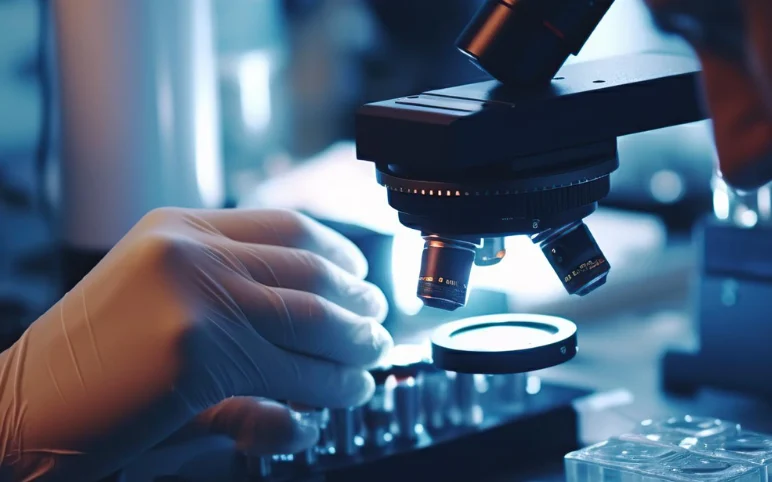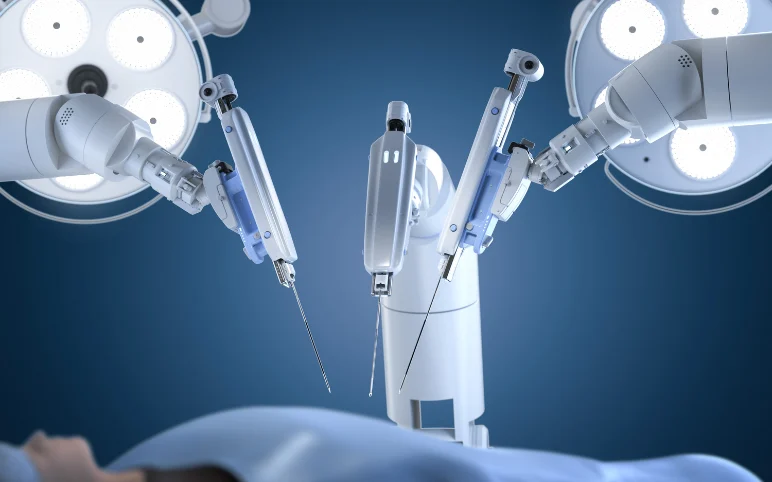New Commercial & Residential Electric Whole-Body Cryotherapy Machines Released by Artica Systems
On March 2, 2023, Artica Systems, an American company with over 20 years of experience in the wellness industry announced the release of a new and innovative 100% electric, whole-body cryotherapy fleet meant for both commercial and residential use.
The latest cryotherapy fleet provides the most adaptive and comfortable cryotherapy experience and possesses the following state-of-the-art features:
- -110F true air temperature (-165F with BreezeLink™)
- BreezeLink™ technology, which has a patent pending, enables customers to alter wind speed and refrigerant flow rates from inside the cabin. A change in user-controlled therapy’s paradigm.
- Leading efficiency with estimated running costs of less than USD 8 per day.
- The smallest available engine. Averages up to 80% smaller than their European equivalents and 60% smaller than other US manufacturers.
- The quietest engine on the market (64dBA at 1m).
- A custom IoT-based networking app that puts diagnostics and control at your fingertips – right on your mobile phone or PC.
- CryoBoost™ for added capacity during peak demand in commercial units.
- Rapid-Defrost™ for maximum efficiency during extended use periods.
Artica Systems gives individuals benefits for their body, brain, immune system, and metabolism by utilizing the power of cold exposure. It helps to fight inflammation and promote healthy immune cells, including cytotoxic T lymphocytes, which play a key role in protecting the body from cancer. The cryotherapy system is tailored and designed to work in a range of conditions for a broad spectrum of users.
Evan Kuklinski, Founder & Chief Engineer of Artica Systems said, “We figured the best way to develop a breakthrough technology was to work together with our clients. People who religiously use cryotherapy every day.” He added, “We addressed our prototypes systematically and learned what made for good cryotherapy, together. It was a clever bit of collaborative innovation.”
As per DelveInsight’s “Cryotherapy Market” report, the global cryotherapy market was valued at USD 258.17 million in 2021, growing at a CAGR of 8.01% during the forecast period from 2022 to 2027 to reach USD 408.44 million by 2027. The cryotherapy market is slated to witness prosperity owing to factors such as the increasing prevalence of chronic diseases such as cancer, neurological diseases, bone diseases, and others, increasing demand for healthy skin, rise in sports and other injuries, and the growing focus on improving the safety and usability of cryotherapy for end-users are further expected to result in the appreciable revenue growth in the cryotherapy market during the forecast period (2022-2027).
First Patient Enrolled in COBRA Study of Stratus® Medical for Nimbus® Radiofrequency Ablation Device
On March 2, 2023, Stratus® Medical, a company focused on advancing radiofrequency (RF) ablation treatment for pain along with the University of Utah, Department of Physical Medicine and Rehabilitation announced the enrolment of the first patient in COBRA study, an IRB-approved, double-blinded, randomized trial, which aims to compare the bipolar treatment with Nimbus® RF Multitined Expandable Electrode to conventional radiofrequency ablation for the treatment of sacroiliac joint (SIJ) pain.
The study supported by an investigator-initiated research grant from Stratus Medical expects to enrol up to 116 patients at the University of Utah and is going to be conducted at three-month, six-month, 12 months, 18-month, and 24-month endpoints. The major objective of the study is to quantify the effectiveness and duration of relief for the popular bipolar application in the sacroiliac joint.
“This study will be one of the largest and best-designed SIJ RFA trials performed to date. We expect the results will significantly impact practice patterns regarding electrode choice for many physicians who treat SIJ pain and will further bolster the existing evidence for SIJ radiofrequency ablation. We thank Stratus Medical for their partnership in funding this important research,” commented Principle investigator, Dr. Aaron Conger, Assistant Professor and Interventional Spine and Musculoskeletal Medicine Physician at the University of Utah in the Department of Physical Medicine and Rehabilitation (PM&R).
Bret Boudousquie, Stratus Medical CEO, said, “We are delighted to support this important investigator-initiated research comparing our highly differentiated and patented Nimbus RF technology to conventional RF needles for the treatment of sacroiliac joint pain. Nimbus is rapidly becoming the preferred large volume lesion nerve ablation technology to treat pain due to reproducible and sustained pain relief, faster procedure times, and lower procedure costs. We expect this research will further validate the significant clinical advantages of Nimbus compared to conventional RF needles.”
According to DelveInsight’s “Ablation Devices Market” report, the global ablation devices market is estimated to grow at a CAGR of 11.65% during the forecast period from 2022 to 2027. Factors such as the increasing incidence of cancers such as liver cancer, the rising prevalence of chronic pains such as musculoskeletal pains, the rising prevalence of cardiac arrhythmias such as atrial fibrillation, and the rising regulatory approvals for technologically advanced ablation devices. Therefore, the market for ablation devices is estimated to grow at a significant CAGR during the forecast period from 2022 to 2027.
Abbott Received FDA Approval for the First Commercially Available Laboratory Traumatic Brain Injury (TBI) Blood Test
On March 7, 2023, Abbott, received the Food and Drug Administration (FDA) clearance for its Alinity i TBI lab test, making it the first commercially available laboratory test for traumatic brain injury (TBI).
The Abbott’s Alinity i TBI lab test which is designed to run on Abbott’s Alinity® i laboratory instrument enables clinicians to quickly assess individuals who are aged 18 years or older and are presenting with suspected mild traumatic brain injury, also known as concussions.
It provides test results with 96.7% sensitivity and 99.4% negative predictive value by measuring the two complementary biomarkers in blood plasma and serum – Ubiquitin C-terminal Hydrolase L1 (UCH-L1) and Glial Fibrillary Acidic Protein (GFAP), that, in elevated concentrations, are tightly correlated to brain injury.
The Alinity I test is suitable to use when a patient arrives at the hospital with a suspected mTBI within 12 hours of the injury. The test is conducted using the Alinity I equipment after a blood sample is taken from the arm and delivered to the lab for preparation. Findings are shared with the treating healthcare physician for assessment in as little as 18 minutes after being available.
Along with assisting healthcare providers to decide upon appropriate next steps and develop a plan to care for patients, the TBI blood test also eliminates the need for a CT scan and can eliminate wait time at the hospital for patients with negative test results.
The test already received European Union clearance and has been available in markets outside the US since 2021.
“People sometimes minimize a hit to the head, thinking it’s no big deal. Others wonder if a visit to the doctor or emergency room for a possible concussion will provide them with meaningful answers or care,” commented Beth McQuiston, M.D., medical director of Abbott’s diagnostics business. Beth added, “Now that this test will be widely available in labs across the country, medical centers will be able to offer an objective blood test than can aid in concussion assessment. That’s great news for both doctors and people who are trying to find out if they have suffered a traumatic brain injury.”
According to DelveInsight’s “Traumatic Brain Injury Assessment Devices Market” report, the global traumatic brain injury assessment devices market was valued at USD 2.8 billion in 2021, growing at a CAGR of 8.57% during the forecast period from 2022 to 2027 to reach USD 4.57 billion by 2027. The Traumatic Brain Injury (TBI) assessment devices market is witnessing positive growth owing to various factors such as the increasing road traffic crashes cases, increasing prevalence of Traumatic Brain Injury, rising geriatric population, and increasing regulatory approvals & launches of Traumatic Brain Injury (TBI) assessment devices. Therefore, the market for TBI assessment devices is estimated to grow at a significant CAGR during the forecast period from 2022 to 2027.
Restore Medical Announced Successful First-In-Human Preliminary Results of Its CONTRABAND™ System for Symptomatic Systolic Heart Failure Patients
On March 7, 2023, -Restore Medical Ltd, a privately held medical device company, announced the successful completion of the first in a human clinical study with its CONTRABAND™ device, which is the world’s first and only Pulmonary Artery Banding (PAB) transcatheter implant device intended to treat and improve the quality of life for heart failure patients.
The CONTRABAND™ device places implants in the left and right pulmonary arteries to treat left ventricular (LV) failure. As a result, the failing LV’s ejection fraction is improved and the right ventricle’s (RV) favourable ventricular shape is restored.
The CONTRABAND™ device improved the quality of life of the treated patients, according to the results of a feasibility, multi-center, prospective study that enrolled up to 15 patients in five hospitals in Europe who were already receiving maximally tolerated guideline-directed medical therapy (GDMT). The implantation procedure was safe for all participants, with excellent long-term right ventricular safety.
According to DelveInsight’s “Transcatheter Aortic Valve Replacement Devices Market” report, the global transcatheter aortic valve replacement (TAVR) devices market was valued at USD 3.23 billion in 2021, growing at a CAGR of 15.41% during the forecast period from 2022 to 2027 to reach USD 7.64 billion by 2027. The demand for transcatheter aortic valve replacement devices is primarily being boosted by the increasing prevalence of aortic stenosis disorder, rise in cardiovascular disorders, increasing demand for TAVR procedures, increasing prevalence of aortic regurgitation, and the technological advancements pertaining to the transcatheter aortic valve replacement arena which are expected to increase the product demand thereby contributing in the growth of the transcatheter aortic valve replacement devices market during the forecast period from 2022-2027.
Nevro Announced US Full Market Launch of Revolutionary HFX iQ™ Spinal Cord Stimulation System
On March 7, 2023, Nevro Corp., a global medical device company that is delivering comprehensive, life-changing solutions for the treatment of chronic pain, initiated the full market launch of its HFX iQ spinal cord stimulation (SCS) system in the US.
Based on the HFX Algorithm™, which was developed using more than 20 million data points and 80,000 implanted patients, HFX iQ places patients on the program that is most likely to relieve their pain. To create a tailored program environment for each patient, HFX iQ blends clinical inputs such as pain alleviation and pain score with Quality of Life inputs such as pain medication and activity level changes. It offers the broadest variety of frequencies of any SCS system on the market, including low frequency and the business’s exclusive high-frequency 10 kHz Therapy™. The improved Senza® high-frequency 10 kHz Treatment delivers distinctive AI-driven iQ modes designed for treating uncomfortable diabetic neuropathy (PDN) and chronic back and leg pain, including non-surgical back pain (NSBP). It has been validated in both clinical and real-world outcomes.
The Senza HFX iQ system is comprised of the HFX iQ Implantable Pulse Generator (IPG), HFX Trial Stimulator, and HFX App. The patients can input assessments into their smartphones and can receive programming adjustments in real-time with a new Bluetooth®-enabled IPG that is upgradeable and connects directly to the HFX App.
Dr. Usman Latif, MD, MBA, a Harvard-trained interventional pain specialist who practices at the University of Kansas Medical Center said, “This is an exciting time in spinal cord stimulation — better waveforms, more conditions we can treat, and a massive treasure trove of patient data.” Dr. Latif added, “The way forward in this field is precision medicine powered by big data and artificial intelligence. Our limitations are human in nature. What if we could take all the programming experience and clinical outcomes of tens of thousands of patients across the country, including what programs worked and what didn’t, and bring the power of all that knowledge into the palm of our patient’s hand — with them 24/7, monitoring them, and offering them the best program for their exact situation with a tap on the screen. HFX iQ is the future of medicine, where expanded data holds the promise of new capabilities and improved care.”
“We are continuing to lead the way with the first big data-backed, AI-powered SCS system that gets smarter over time, learning from patient responses to deliver personalized relief to patients,” commented D. Keith Grossman, Chairman, CEO, and President of Nevro. Keith added, “With over 10 years of innovation and now over 100,000 patients served, Nevro brings the next big advancement to SCS therapy with HFX iQ, a system that will apply the big data we have collected over the last decade to help patients find pain relief faster and maintain that relief over time. We believe that what we’re doing with HFX iQ is the future of SCS therapy, and keeps Nevro firmly at the forefront of innovation, as we continue to work with our clinicians to bring new technology, new data, and new indications to their patients.”
According to DelveInsight’s “Spinal Cord Stimulators (SCS) Market” report, the global spinal cord stimulators market was valued at USD 2.25 billion in 2021, growing at a CAGR of 8.70% during the forecast period from 2022 to 2027 to reach USD 3.72 billion by 2027. The demand for Spinal Cord Stimulators (SCS) is primarily attributed to the growing number of patients with chronic pain and neuropathic pain in the shoulder, legs, and knee. The technologically advanced devices that are non-invasive to eliminate targeted pains and cause a reduction in patient discomfort with no side effects are likely responsible for a boost in the Global Spinal Cord Stimulators (SCS) Market growth. Moreover, favorable government regulations for commercialization and launching products in the market and the rising geriatric population are some of the factors responsible for propelling the growth of the Spinal Cord Stimulators (SCS) Market.
Respiree Earned US FDA 510(k) Clearance for RS001 Cardio-respiratory Wearable
On March 8, 2023, Respiree, a digital therapeutics company providing personalized healthcare services for cardio-pulmonary disease management using a combination of proprietary breath-cardio sensors, AI, and workflow-integrated UIUX received the 510(k) clearance from the United States Food and Drug Administration for its RS001 cardio-respiratory wearable.
The RS001, intended for patients suffering from cardio-pulmonary diseases such as chronic obstructive pulmonary disease (COPD) and congestive heart failure, is a chest wearable that measures respiration directly.
Respiree intends to seek additional 510(k) clearances with the help of its initial approval for its expanded indications for use and software that will make use of the RS001’s proprietary respiratory digital biomarkers to forecast the progression of conditions in diseases like COPD and congestive heart failure. RS001 is already CE-marked and approved for use in Australia by the Therapeutics Goods Administration (TGA).
Respiree’s CEO and Founder Dr. Gurpreet Singh said, “COPD exacerbations drive both morbidity and mortality. It is important to be able to identify them early and prevent them with the right therapeutic. By using Respiree’s RS001, physicians can now have the opportunity to identify exacerbations not hours or minutes in advance, but days in advance. This can enable patients to quickly receive preventive care before exacerbation onset.”
According to DelveInsight’s “Wearable Medical Devices Market” report, the global wearable medical devices market is estimated to grow at a CAGR of 13.67% during the forecast period from 2022 to 2027. The wearable medical devices market is witnessing positive growth primarily due to the rising prevalence of chronic diseases such as cardiovascular, diabetes, pain, and others. Further, the rising burden of the geriatric population prone to various chronic diseases across the globe, the increasing awareness about fitness & physical activity, the increasing regulatory approval for wearable medical devices across the globe along with the presence of key players will in turn, surge the demand for wearable medical devices during the forecast period. Therefore, the market for wearable medical devices is expected to grow during the forecast period from 2022 to 2027.



